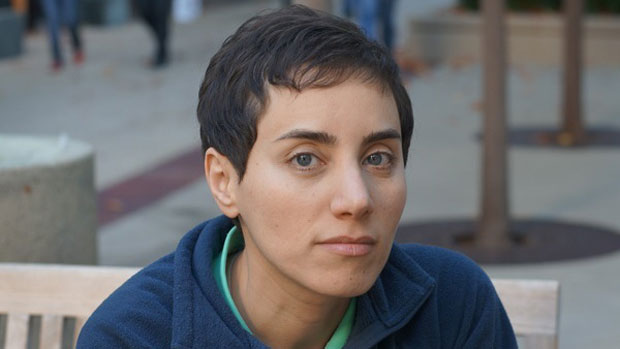Profile: Maryam Mirzakhani, the first woman to win the Fields Medal
Mirzakhani takes the top maths prize, banishing 'myths about women and mathematics'

A free daily email with the biggest news stories of the day – and the best features from TheWeek.com
You are now subscribed
Your newsletter sign-up was successful
Maryam Mirzakhani has become the first woman to win the most prestigious prize in mathematics, the Fields Medal.
Mirzakhani described it as a "great honour" saying she hopes it will encourage other young female scientists and mathematicians. "I am sure there will be many more women winning this kind of award in coming years," she told the Stanford News.
This year's other winners were Martin Hairer, an Austrian mathematician based at Warwick University, Manjul Bhargava, a Canadian-American at Princeton University, and Artur Avila, a Brazilian-French researcher at the Institute of Mathematics of Jussieu in Paris.
The Week
Escape your echo chamber. Get the facts behind the news, plus analysis from multiple perspectives.

Sign up for The Week's Free Newsletters
From our morning news briefing to a weekly Good News Newsletter, get the best of The Week delivered directly to your inbox.
From our morning news briefing to a weekly Good News Newsletter, get the best of The Week delivered directly to your inbox.
Who is Maryam Mirzakhani?
Born and raised in Iran, the 37-year old mathematician finished her PhD at Harvard in 2004 and is now a professor at Stanford University in California. She admits that she was not always interested in mathematics, dreaming instead of a career as a writer – and it was her older brother who first got her interested in maths and science.
"I can see that without being excited mathematics can look pointless and cold," she said in an interview republished by The Guardian. "The beauty of mathematics only shows itself to more patient followers."
Mirzakhani says her favourite part of the subject is reaching the 'ah-ha' moment. She compares the excitement of finally understanding a complex subject or discovering something new to "the feeling of being on top of a hill and having a clear view".
A free daily email with the biggest news stories of the day – and the best features from TheWeek.com
Why is her win so important?
It has been hailed as a major victory for women in mathematics as Mirzakhani is the first woman to receive the medal in the award's 78-year history.
"Women are doing so well now in mathematics that this is just icing on the cake," Professor Alison Etheridge, a lecturer in applied mathematics at the University of Oxford, told the BBC.
Her win will finally "put to bed many myths about women and mathematics", Sir Tim Gowers, a previous Fields Medal winner, told The Guardian.
Professor Dame Frances Kirwan, a member of the medal selection committee said she hoped that Mirzakhani's win would inspire girls and women across the world to "believe in their own [mathematical] abilities and aim to be the Fields Medallists of the future".
What is the award?
Often described as the Nobel Prize of mathematics, the Fields Medal has awarded 52 researchers for their outstanding contribution to mathematics since 1936.
The award is unique in the science world, as it has an upper age limit of 40 and is only awarded every four years. It also has a relatively modest monetary prize of CAN$15,000 (about £8,000).
In 2006, Russian mathematician Grigori Perelman became the first person to ever turn down the award, saying "I'm not interested in money or fame. I don’t want to be on display like an animal in a zoo".
How did Mirzakhani win?
She was awarded the medal for her "contributions to the understanding of symmetry of curved surfaces". Her work, which involves complex and abstract geometric systems, is largely theoretical but has wider implications for physics and quantum field theory.
-
 The 8 best TV shows of the 1960s
The 8 best TV shows of the 1960sThe standout shows of this decade take viewers from outer space to the Wild West
-
 Microdramas are booming
Microdramas are boomingUnder the radar Scroll to watch a whole movie
-
 The Olympic timekeepers keeping the Games on track
The Olympic timekeepers keeping the Games on trackUnder the Radar Swiss watchmaking giant Omega has been at the finish line of every Olympic Games for nearly 100 years
-
 Instant Opinion: General election is an ‘unpopularity contest’
Instant Opinion: General election is an ‘unpopularity contest’In Depth Your guide to the best columns and commentary on Tuesday 10 December
-
 Tony Blair's philanthropy prize and four other dubious awards
Tony Blair's philanthropy prize and four other dubious awardsIn Depth GQ names Tony Blair philanthropist of the year but it's not the first controversial prize to be awarded